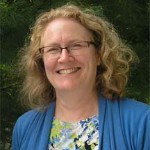 Jean Wilczynski is a US Coast Guard veteran. Following her active service Jean worked in communications, logistics, financial analysis, and investor relations.
Jean Wilczynski is a US Coast Guard veteran. Following her active service Jean worked in communications, logistics, financial analysis, and investor relations.
Jean is the consummate volunteer, serving as a leader of the Lyme/Old Lyme Education Foundation, Friends of Music, Safe Graduation committees, and mentoring the high school’s FIRST robotics team. Jean taught religious education classes and is a lector in her church.
Jean and her husband Vince, also a military veteran, have lived in Old Lyme since 1992. Their three sons are graduates of Lyme-Old Lyme High School, having attended all four Old Lyme schools from kindergarten.
Name the three characteristics (one word for each) that you believe will make you an effective member of the board of education? Expand on the one that you feel should be most significant to the voters.
Three characteristics that I believe will make me an effective member of the board of education are committed, accessible, and thoughtful. And when I use the word thoughtful, I mean in both senses of the word: reflective and considerate.
I think things through. When faced with a complex decision, I tend not to rush to judgment, but to gather information from a variety of sources. I like to look at issues from various perspectives and to discuss the alternatives with others to hear their points of view. While I combine distinctive opinions about the importance of high-quality education with a breadth and depth of knowledge about our community schools comes from nearly two decades of experience as an involved parent and volunteer, I do not think I have all the answers. The best answers can come from a variety of sources and we all need to exhibit a genuine willingness to carefully consider well-researched alternatives.
I also care about people. I believe this kind of thoughtfulness is essential to a Board of Education charged with making decisions that impact so many lives – those of students most of all, but also teachers, staff members, administrators and the community at large. It is important to be mindful of the impact decisions will have on others. A calm voice of reason can go a long way to bring together those with strongly held, often seemingly opposing views.
What do you think will be the biggest challenge facing Lyme-Old Lyme Public Schools in the next four years?
Our greatest challenge in the next four years will be continuing to provide today’s breadth of programs and excellent educational opportunities for all of our students in the face of declining enrollment. And to be honest, it is not enough to maintain the status quo. We will need to be continuously evaluating our existing programs with an eye to improvement. The Board of Education will need to enlist the community to find creative ways to provide opportunities for our students.
The strategic planning process which has just started here in our community provides a great opportunity for us to take the pulse of the community and bring to light those non-negotiable ideas that we collectively hold as important values to be passed on to our children. Then we will have to look at our existing educational programs as a whole to see how they reflect those values and make course corrections when they do not.
We will need to be creative and actively research options that other districts and schools are using to address similar needs. We will need to find those programs that are especially valuable by actively seeking out excellent educational programs on the regional, state and national level and honestly assess ourselves in light of those role models. We will need to continuously benchmark our district schools and programs compared to those best practices and then find creative ways to bring new opportunities for growth and development to our students and schools.
If you could achieve one objective — and only one — during your term on the Region 18 Board of Education, what would it be?
First, I believe that the “trifecta” currently in various stages of implementation — the Common Core State Standards and the associated Smarter Balanced Assessments along with the new System for Educator Evaluation and Development program — comprise three critical legs of the same effort to improve teaching and ultimately our students’ educational outcomes.
Today, we have all of these complex programs being implemented in tandem and we need to be very cognizant of the impact on our human resources – the teachers and students. Done right, these new initiatives will provide teachers and students with valuable feedback that will encourage personal growth and development.
It is critical that we provide the support and resources that are needed to accomplish the implementation as intended. The Board of Education needs to pay close attention as the implementation proceeds and remain open and accessible to all stakeholders – administrators, teachers, staff members, parents, and students alike. When educators and students feel empowered and supported they accomplish great things. We have seen this first hand as the various sections of our new high school came online. But the inverse also occurs and we need to guard against these changes becoming onerous and burdensome and instead weigh our people down without providing them with valuable information to improve and grow as professionals. Our students will be the ultimate losers if we don’t’ get this right.